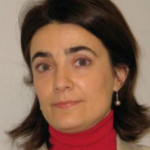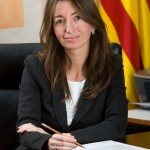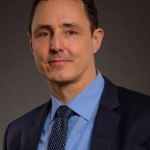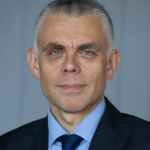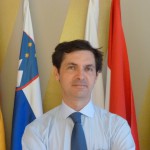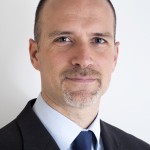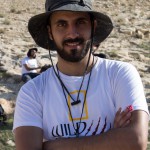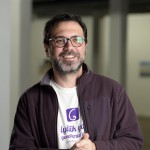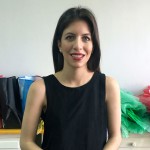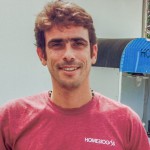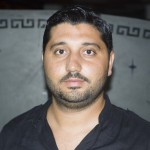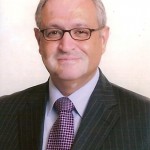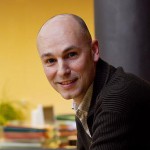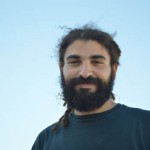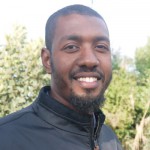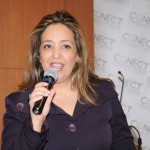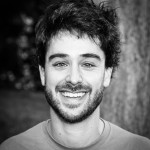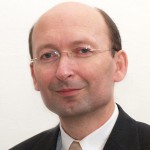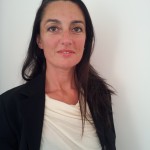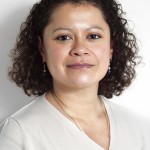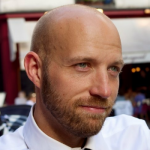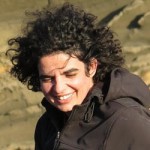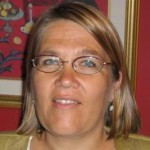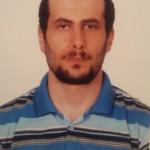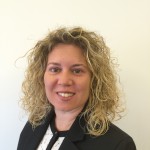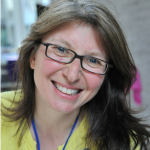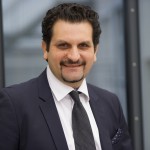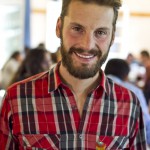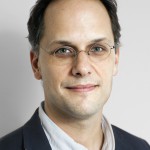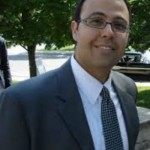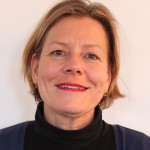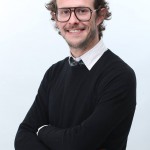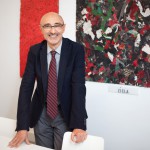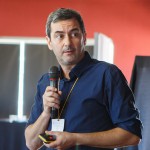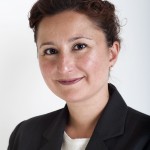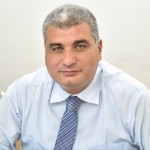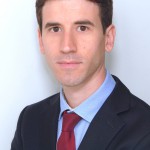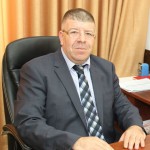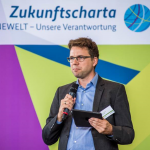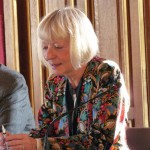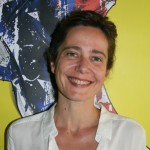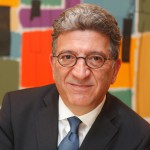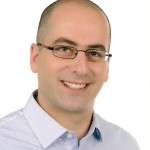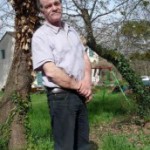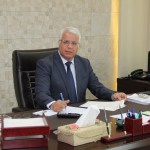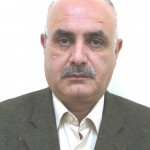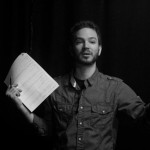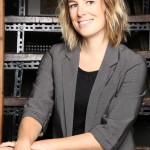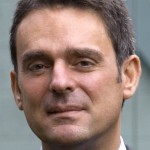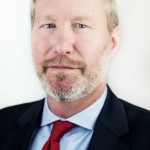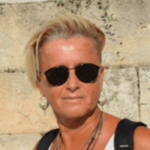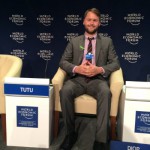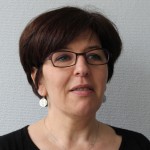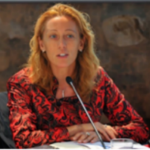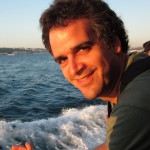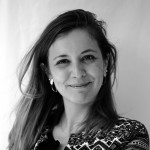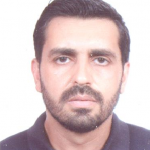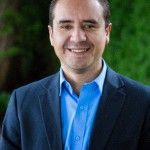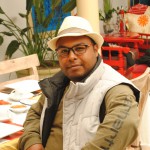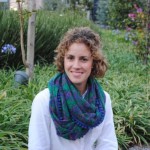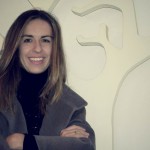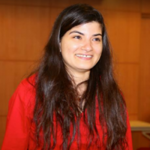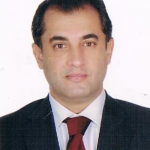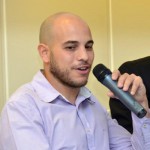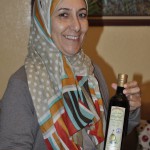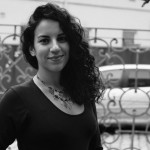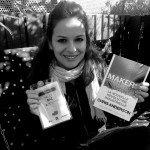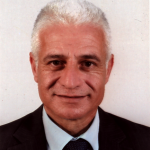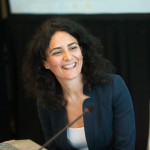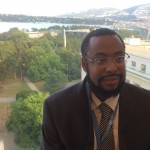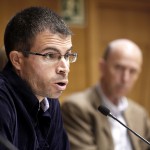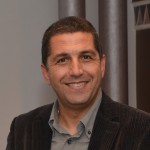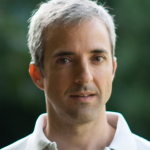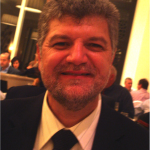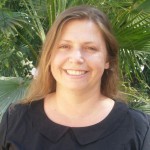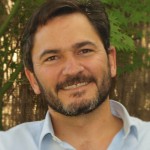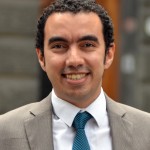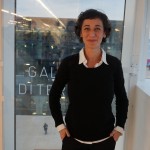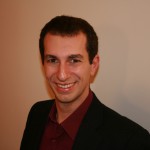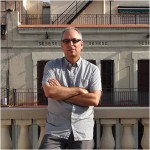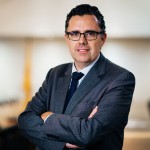Agenda
Registration
Official launch of the SwitchMed Connect 2016
Switchers Pecha Kucha
Refreshment Break
Parallel Tracks
Policy Track 1: Master Class In Circular Economy
In the first part of the session, we will be identifying and providing interesting insights about the main aspects to be considered by policy makers, entrepreneurs and business intermediaries for enabling "circularization" of the economy with a focus on the North and South Mediterranean countries. This first part is organised in collaboration with Circolae. In the second part of this session, Global Sustain will present the Yearbook 2015-2016: SCP - Towards Circular Economy, views and case studies related to circular economy from institutions and businesses. The publication is prepared in collaboration with the United Nations Environment Program (UNEP) and specifically with the Regional Activity Center for Sustainable Consumption and Production (SCP/RAC) of the Mediterranean Action Plan (MAP).
[Read more]
Industry Track 1: Policy instruments proposals for Resource Efficient Cleaner Production (RECP) (only by invitation)
Policy instruments can be powerful tools for countries to accelerate shifting towards sustainable production practices in the industrial sector. In this session, the MED TEST II country teams will share key findings from the policy baseline review and their experience working on outlining policy instruments proposals for RECP that could be most effective in their respective context. The session is organized by the UNIDO Project Management Unit (PMU).
[Read more]
Entrepreneurs Track 1: Green Entrepreneurship Training and Support Programmes
What are the most effective ways to support green entrepreneurs today? Miquel de Paladella from UpSocial will share his insights into the world’s leading programs, and three practitioners will add their perspectives on the most relevant tools, existing best practices, and success stories. This session is organized by SCP/RAC.
[Read more]
Civil Society Track 1: Tools For Supporting Grassroots Innovations
This session is organised by SCP/RAC.
The Civil Society Empowerment programme will be introduced during this session and the attendees will have the chance to learn more about social eco-innovation and grassroots type initiatives. The session will also count with presentations from some of the Civil Society initiatives from Morocco, Algeria, Tunisia and Lebanon selected to take part in the Support Phase of the programme. It will be the perfect chance to get to know some of the emerging social eco-innovation examples from the Mediterranean region.
[Read more]
Lunch
Parallel Tracks
Entrepreneurs Track 2: Circular Economy Opportunities In The Mediterranean Cities (Part 1)
Circular economies derive social and environmental benefits by considering product life cycles holistically, from production and consumption to waste management and markets for secondary raw materials. Cities that embrace the principles of the circular economy can reap these benefits and at the same time help to foster resilient and prosperous communities. Participants will learn about cities that are leading the way in this domain, see concrete examples of circular economy solutions being applied in cities in the Mediterranean, and come away with knowledge to inspire them to think about how to bring these solutions to their own cities. This session is organised by Alfredo Balmaceda, ZICLA, and Yair Engel, EPEA Cradle to Cradle, with a keynote by Francoise Bonnet, ACR+, and interventions from the European Commission, the City of Barcelona, and the Palestinian Housing Council, amongst others.
Industry Track 2: MED TEST II Programme: Future Implementation and Scaling Up of SwitchMed Components: How Can We Effectively Scale Up? (only by invitation)
The Country Teams will gain a practical framework for approaching the development of National Scaling Up Roadmap by presenting the results of their initial reflections (drawing on pre-work) regarding scaling up actions from a policy perspective, and then they will work in Country Teams to identify potential scaling up actions related to other levels of intervention. Organisers: Joyce Miller & Eli de Friend (CAPRESE), Roberta de Palma (UNIDO), Carolina Gonzales-Müller (UNIDO), Vladimir Anastasov (UNIDO), Vladimír Dobes (UNIDO), Matthew Lagod (SCP/RAC).
[Read more]
Finance Track 1: Capacity Building Session for Green Entrepreneurs and Start-ups: How to effectively access to finance?
How to succeed in accessing finance as a Green Start-up? Green entrepreneurs are invited to explore with financiers how to crack the financing nut. This session is organised by SCP/RAC, FEBEA.
Civil Society Track 2: Building a Mediterranean Network of Local, Agroecological Solidarity Partnerships
This session aims at broadly presenting the international Community-Supported Agriculture (CSA) network project and its partners and describing more specifically some CSA initiatives (France, Palestine, Catalunya). In the first part, the coordinators of the network will provide the participants with a better insight into the needs of the network. The second part will be devoted to open discussion about potential partners and synergies with other networks like the SwitchMed Initiative.
Refreshment Break
Parallel Tracks
Policy Track 2: Sustainable Development Goals in a Changing Climate
Industry Track 3: Resource Efficiency and Cleaner Production for the Commercial Sector
Tailoring RECP approach by applying it on commercial sector in a RECS (Resource Efficiency in Clean Services) approach. As economic activities in the Arab countries comprises mostly commercial services, and as these services consume potential resources and produce huge amount of wastes that could be hazard sometimes, we propose a method for tailoring RECP to commercial sector using the new RECS approach. It is expected that RECS approach will mitigate the potential adverse impact of the commercial sector and help preserve the resources as well as the environment.
This session is organised by the Palestine Academy for Science and Technology (PALAST).
[Read more]
Entrepreneurs Track 3: Transfer and Adaption of Sustainable Business Models in the Mediterranean
The session will debate how to generate a value chain for products using local resources. How to connect and grow up collaborating with other similar environments will also be addressed. A case study: Pep Lemon. This session is organised by Rainer Agster (SEED Initiative) and Carme Verdaguer & Cristoph Hafner (Lemon Factory).
Finance Track 2: Building a Green Impact Investing Network for the Mediterranean (closed participation)
Increased cooperation between financing institutions in the Mediterranean will help boost access to finance for green entrepreneurs – which examples can we learn from? This session is organised by SCP/RAC and FEBEA.
Entrepreneurs Track 2: Circular Economy Opportunities In The Mediterranean Cities (Part 2) - Urban Acupuncture Workshop
As a practical follow-up to Part 1 of “Circular Economy Opportunities for Mediterranean Cities”, Part 2 of the session will provide participants with an opportunity to apply the principles of circular economy as they brainstorm solutions to common environmental challenges in urban areas, including transportation; food, water and energy supplies; and waste management. Participants will be encouraged to consider how ‘urban acupuncture’ approaches - small-scale interventions to transform the larger urban context – can be implemented in their own communities.
Bilateral meetings
The SwitchMed Connect Party
Panel on circular economy businesses in the Mediterranean
Refreshment Break
Parallel Tracks
Policy Track 3: Use Of Behavioral Economy In Public Policy To Shift Behaviour
Behavioral Insights is a field aimed to identify and test the variables that influence our day-to-day decision-making. The core idea is that we are always surrounded by "Choice Architecture": cues, signs and information which guide us, consciously or unconsciously, towards certain behaviors. As a policy tool, this idea can be harnessed in order to promote more sustainable behaviors and choices. Through sharing practices and case studies, this session's aim is to demonstrate how to best implement behavioral insights as an environmental policy tool, and facilitate a network of stakeholders interested in sharing information, findings and conclusions.
[Read more]
Entrepreneurs Track 4: Closing The Life-Cycle Of Plastic Waste With Inclusive Business Approaches
The sessions is an stimulation about how to use the guide for identifying business opportunities and designing resulting projects for closing the life cycle of waste. Based on the guide methodological framework, experiences of Danone company in this type of projects will be shared. This session is organised by MinkaDev.
Industry Track 2: Regional Exchange on Next Steps for Scaling Up Sustainable Production (only by invitation)
Through a “marketplace setting”, Country Teams will share their results and reflection about scaling up and identify and discuss their next steps towards mainstreaming of sustainable production. This session is organised by the SwitchMed Networking Facility, MED TEST II PMU and CAPRESE. This session is only by invitation.
Finance Track 2: Building a Green Impact Investing Network for the Mediterranean (open participation)
Increased cooperation between financing institutions in the Mediterranean will help boost access to finance for green entrepreneurs – which examples can we learn from? This session is organised by SCP/RAC, FEBEA.
Lunch
Parallel Tracks
Business & Retailers Track 1: Building Partnerships Within Olive Oil Value Chains
The session will highlight how producers, importers, retailers and governments can promote the commercialization of sustainable olive oil and how such efforts can generate environmental, economic and social benefits while positively impacting consumer health. After sharing their respective experiences, speakers will interact with the audience to identify innovative solutions to advance Sustainable Consumption and Production in the olive oil sector. This session is organised by Malick Kane (UNCTAD).
[Read more]Finance Track 3: Financing Instruments For Green And Inclusive Industry
Resource efficiency (RE) is fundamental to the competitiveness of small and medium sized enterprises (SMEs), since raw materials, energy and water typically account for more than 50% of their manufacturing costs. However, many SMEs have not yet fully exploited the benefits of RE measures in their manufacturing processes, in large part due to financing. The perceived or effective high cost of resource efficiency technology, coupled with difficulty in borrowing investment capital, is commonly reported by SMEs across the Mediterranean region as a key issue. In this session, MED TEST II local partners and service providers are joined by Mediterranean financial institutions to discuss solutions to common challenges of SMEs seeking to finance RE technologies. The session is organized by the UNIDO Project Management Unit (PMU) and the SwitchMed Networking Facility hosted by the SCP/RAC.
Entrepreneurs Track 6: Sustainable business networks in the Euro-MED region
Sustainable business networks, usually business associations or federations, constitute a remarkable agent within green economy ecosystems, capable of boosting eco-entrepreneurship, and scaling up the impact of their members by enlarging their social capital, promoting their businesses, stimulating innovation, and bringing their voice to decision makers. In this context, we want to organize a session for managers and members of networks of this kind across the Euro-MED region to exchange best practices and success stories, and look for opportunities of international collaboration. Also, organizations interested in setting up similar networks in their region, or rendering their “traditional” ones towards more sustainable ones, are welcome to join the conversation, and will be provided with guidance.
Entrepreneurs Track 9: Building Bridges for the makers, hackers & eco-design entrepreneurs
It is a presentation on design entrepreneurship and maker movement to build eco-friendly solutions in the MENA region, followed by a collective intelligence workshop on measuring the impact of makers on eco-entrepreneurship and ecosystem challenges. We will explore the questions: how is innovation fostering for change and leading to sustainability through the makers and entrepreneurship (product and service) in the MENA region? What are the successful models to replicate? And how can we leverage design entrepreneurship to provide solutions and fast results in saving the planet (environmental)?
Entrepreneurs Track 5: Experience Sharing Among MENA Start-Ups
This session would be organized by two entrepreneurs from Morocco and Tunisia, respectively Mohammed Mrani Alaoui and Aymen Louhichi, who will share some of their experiences launching and developing a social business and an innovative startup in the MENA region : How to address socio-economic challenges ?How to find the right partner and/or an investors in immatures entrepreneurial ecosystems ? The purpose of this session is to share some great examples of work being carried out and help avoid mistakes and tackle entrepreneurship in a different and more fruitful way.
Refreshment Break
Parallel Tracks
Industry Track 4: Green Industrial Zones in the Mediterranean
Industrial symbiosis is an association between two or more industrial facilities or companies in which the waste or by-products of one can become the raw materials for another. In this session, we will be presenting several leading examples from the Mediterranean region.
[Read more]
Entrepreneurs Track 7: Branding and Communications for Green Entrepreneurs
Green Entrepreneurs are faced with many challenges while ideating, managing and scaling up their business, one of them being how to develop a compelling value proposition and engaging key stakeholders and audiences to make their theory of change a reality.
In this practical session, devoted to branding and communications specifically for green entrepreneurs, the participants will learn how to lay the foundations and develop a branding and storytelling strategy for their ventures to effectively engage their key audiences and stakeholders and hence, contribute to the success of their ventures. This session is organised in collaboration by Sonia Ruiz, Noima Meaningful Communications
[Read more]
Entrepreneurs Track 8: Innovative Instruments For Crowdsourcing And Crowdfunding Eco-Innovative Solutions
Crowdsolving is the crowdsourcing of innovative solutions for industrial, environmental and societal challenges. By doing so, innovation and R&D become more accessible and affordable for local businesses, NGO and governmental institutions. Innovations coming out are very crowdfundable and investable given their originality! But how can any organization be involved in this? What is different in these instruments that make them efficient and replicable?
This joint workshop by Yomken.com (CrowdSolving platform based in Egypt & recently in Tunisia) and La Bolsa Social (a Crowdfunding platform from Spain) will share their successful experiences and answer these questions.
[Read more]
Industry Track 5: Growing your business with green and inclusive labels
Growing your business with green and inclusive labels"]Responsible business conduct is first and above a performance approach that will help you grow your business by gaining in efficiency. But labels supporting green and inclusive growth can help you boost this approach and accelerate your expansion: The case of EDILE and Label RSE Conect – Synergies with SwitchMed.
[Read more]


 Français
Français